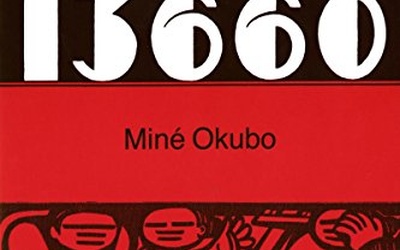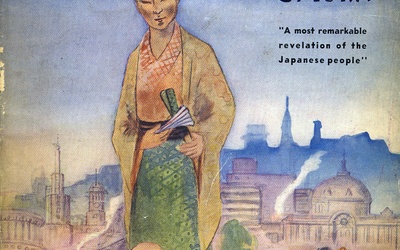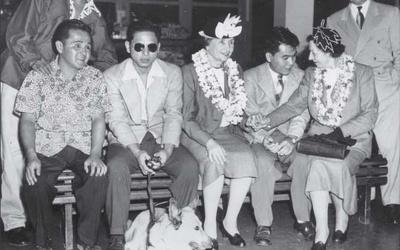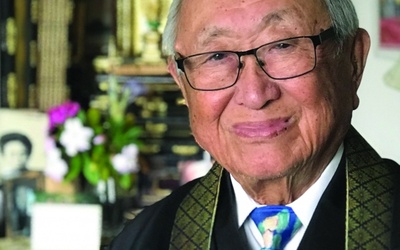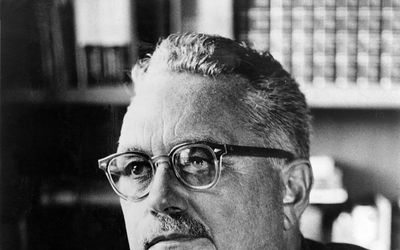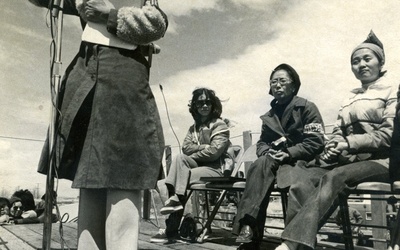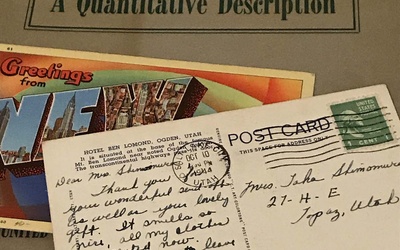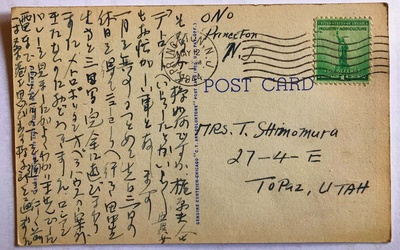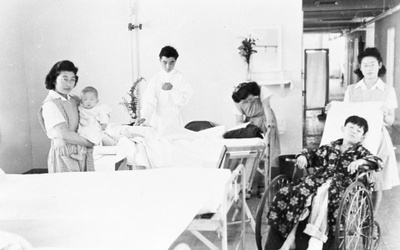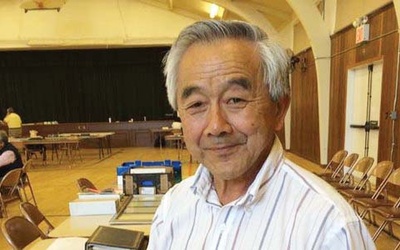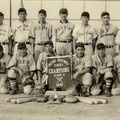
Jonathan van Harmelen
@jonathanJonathan van Harmelen is currently a Ph.D student in history at UC Santa Cruz specializing in the history of Japanese-American incarceration. He holds a BA in history and French from Pomona College and an MA from Georgetown University. He can be reached at jvanharm@ucsc.edu.
Updated February 2020
Stories from This Author
Posh Writings on Prisons in the West: The New Yorker’s Take on Japanese American Incarceration
Nov. 24, 2020 • Jonathan van Harmelen
In the wake of the Los Angeles Times’s recent self-reflection on the place of racism in its past, it is worth considering how mainstream publications covered historical events in American history associated with race and civil rights. One issue that inspired a wide range of responses was the mass removal and incarceration of Japanese Americans during World War II. Public opinion in favor of incarceration was fueled in part by the racist media portrayals of Japanese American disloyalty that were …
Bunji Omura – New York Japanese Antifascist Writer and Publicist
Nov. 11, 2020 • Greg Robinson , Jonathan van Harmelen
Although the saga of the Issei generation has been written by a number of historians, our understanding the views of Issei writers and thinkers on Japan is still incomplete. While the work of Eiichiro Azuma delves into the connections of the Issei to Japanese expansionism and the rise of militaristic nationalism, few have examined their counterparts who spoke out publicly against Japan’s move toward fascism, and who defended democracy. One such voice was that of Bunji Omura. Bunji Omura was …
Finding Sunshine Among Shadows: The Unknown History of Wartime Disabled Japanese Americans
Nov. 2, 2020 • Jonathan van Harmelen
On Aug. 13, 1943, Japanese Americans at the Tule Lake concentration camp opened copies of the Tulean Dispatch to find, on Page 2, a letter from Helen Keller, the deaf-blind disability activist. The entry was surprising but not unexpected: days before, students with disabilities decided to name their newly opened school in the camp in her honor. Hannah Takagi wrote to Keller on behalf of the Japanese American students: “We are but a few of the thousands of Japanese Americans …
Wisdom through troubling times: The Life of LaVerne Senyo Sasaki
Oct. 21, 2020 • Jonathan van Harmelen
Reverend Sasaki is no stranger to challenges in life; as one of the longest-serving Jodo Shinshu Buddhist priests in the United States, Reverend LaVerne Senyo Sasaki has helped maintain the presence of Buddhist church within Northern California for over 60 years. Now almost 90 years young, Reverend Sasaki still preaches at Buddhist Temples. At a service at the Buddhist Church of San Francisco in October 2019, he recalled humorously the difficulties of holding services and keeping audiences chanting sutras for …
The Pulitzer Prize and Japanese Americans in the South
June 29, 2020 • Jonathan van Harmelen
As with other tragic chapters in United States history, the incarceration of Japanese Americans has had a lasting legacy on American culture. While the history of race relations in the American South has traditionally focused on black-white relations and the legacies of Jim Crow, a parallel field examining the experience of Asian Americans in the Deep South has emerged, featuring the work of such authors as Greg Robinson, John Howard, Moon-Ho Jung, Stephanie Hinnershitz, and Lucy M. Cohen. In places …
The Importance of Place: The Manzanar Pilgrimage and COVID-19
June 19, 2020 • Jonathan van Harmelen
Like so many events these days, the 51st annual Manzanar Pilgrimage was cancelled on Thursday, April 17 due to COVID-19. For the first time, the Manzanar Pilgrimage, a tradition that brings former incarcerees, activists, and scholars together, will not be held on the grounds of the Manzanar Concentration Camp. The pilgrimage’s organizing group, the Manzanar Committee, announced in its press brief that while the decision was difficult, “the health and well-being of our community, particularly our elders, is most important, …
Memories on the Open Market
June 2, 2020 • Jonathan van Harmelen
For scholars of Japanese American history, telling the story of incarceration is important yet difficult. Doing justice to the complicated narrative of camp life and the experiences at ten unique camps across the deserts and swamps of the U.S. is not easy. As a historian, I find it is important to look beyond government records and interviews when I write about the history of the incarceration. One way I do so is by examining objects of incarceration. In a previous …
Sometimes the Smaller Things Tell a Greater Story
May 19, 2020 • Jonathan van Harmelen
A woman arrives at New York City after a long trip from Detroit. She writes to a distant friend about her long travels from home to Detroit and, finally, to New York City for the first time. The city was astonishing; vast city streets, landmarks abound, yet riddled with trash and squalor from a lack of upkeep. The Metropolitan Opera House offered a performance of the Ballet Russe, a wonder for someone visiting a cosmopolitan city for the first time. …
Quarantine in Camp: Stories of Other Pandemics
May 5, 2020 • Jonathan van Harmelen
Shortly after leaving Topaz to attend the University of Montana, Missoula, Miyeko Taketa received a letter from her friend Pearl Nugent in February 1944. Nugent, the wife of Reverend Carl Nugent of Topaz’s Protestant Church, shared one interesting story that might interest readers today: “Yesterday our seven week scarlet fever quarantine came to an end and I went shopping, free as the air, the first time I’ve been out since we returned from Topaz on Christmas afternoon.”1 While Pearl Nugent …
“Infamy’s legacy: Tule Lake and repatriation remembered”
April 10, 2020 • Jonathan van Harmelen
One of most divisive chapters of the Japanese American incarceration is the story of Tule Lake. While established as a traditional War Relocation Authority (WRA) camp, it was declared a “segregation center” by the WRA to meet Congressional demands issue loyalty oaths and begin military recruitment within camp. Of the 120,000 Japanese Nationals, and Japanese Americans that were incarcerated starting in 1942, about 10,000 were labeled as “No, No” Boys: troublemakers who refused to answer two questions of the infamous …

